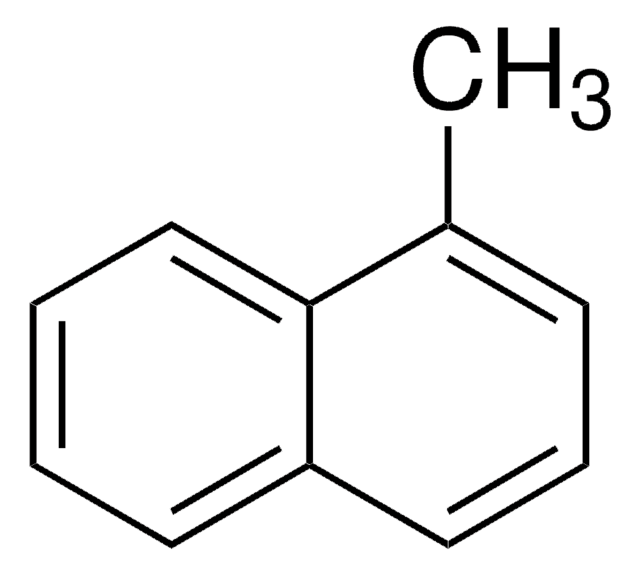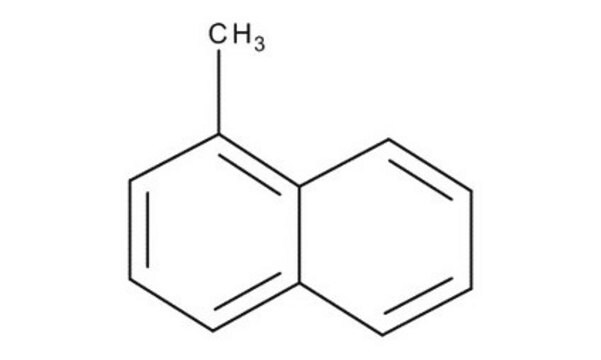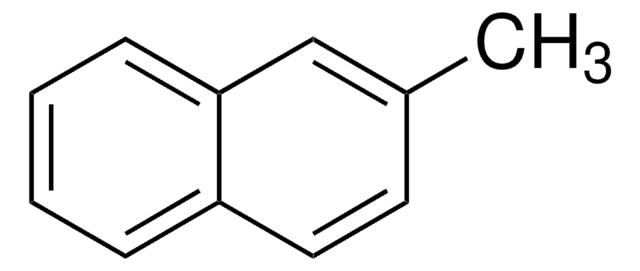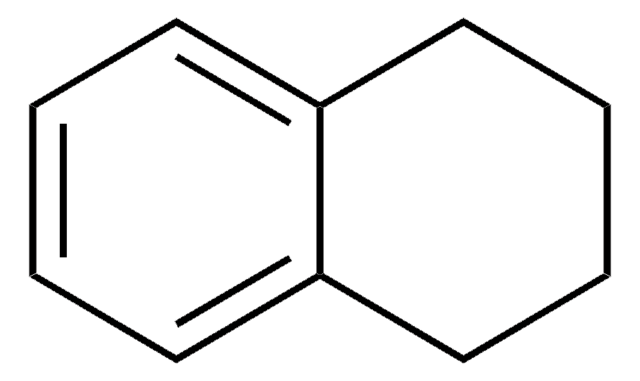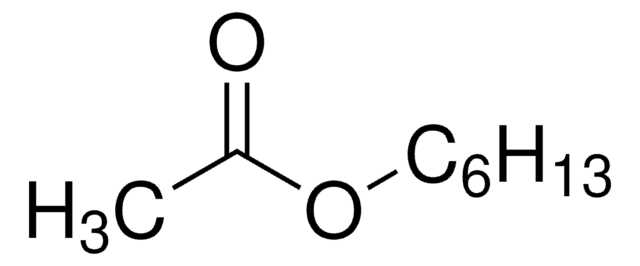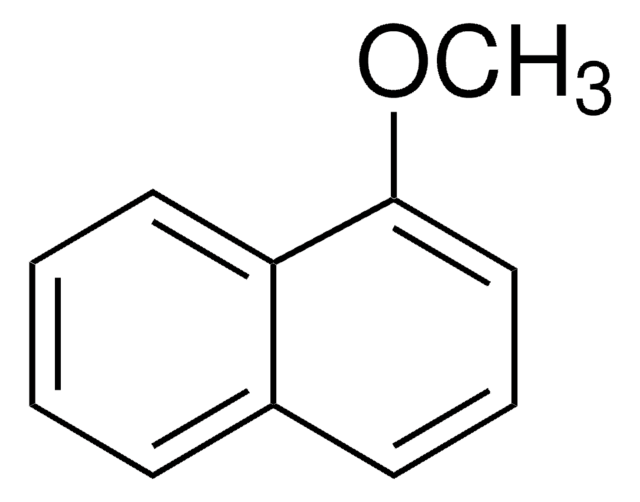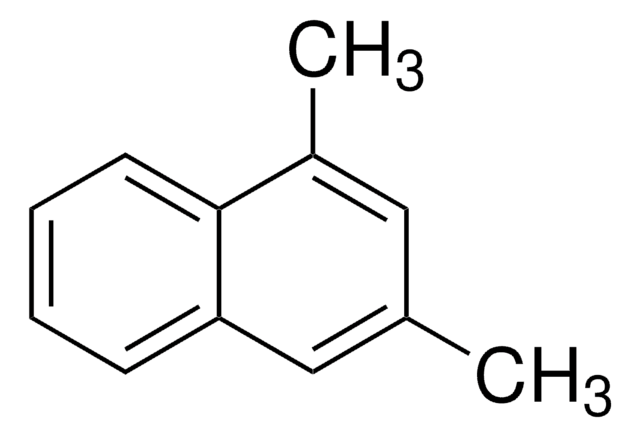About This Item
Recommended Products
grade
analytical standard
Quality Level
Assay
≥98%
autoignition temp.
984 °F
shelf life
limited shelf life, expiry date on the label
technique(s)
HPLC: suitable
gas chromatography (GC): suitable
refractive index
n20/D 1.615 (lit.)
bp
240-243 °C (lit.)
mp
−22 °C (lit.)
density
1.001 g/mL at 25 °C (lit.)
application(s)
environmental
format
neat
SMILES string
Cc1cccc2ccccc12
InChI
1S/C11H10/c1-9-5-4-7-10-6-2-3-8-11(9)10/h2-8H,1H3
InChI key
QPUYECUOLPXSFR-UHFFFAOYSA-N
Looking for similar products? Visit Product Comparison Guide
Application
The 1-Methylnaphthalene may find the following uses:
- Study of surface and electronic features of fluorinated TiO2 and their influence on the photocatalytic degradation of 1-methylnaphthalene
- Thermal decomposition of 1-Methylnaphthalene in a batch reactor
- Catalytic conversion of tar from hot coke oven gas using 1-methylnaphthalene as a tar model compound
- Hydrocracking of 1-methylnaphthalene to benzene, toluene, and xylene using high metal–acid balance and selective hydrogenation activity catalysts
Recommended products
Signal Word
Danger
Hazard Statements
Precautionary Statements
Hazard Classifications
Acute Tox. 4 Oral - Aquatic Chronic 2 - Asp. Tox. 1
Storage Class Code
10 - Combustible liquids
WGK
WGK 2
Flash Point(F)
179.6 °F - closed cup
Flash Point(C)
82 °C - closed cup
Personal Protective Equipment
Choose from one of the most recent versions:
Already Own This Product?
Find documentation for the products that you have recently purchased in the Document Library.
Customers Also Viewed
Protocols
GC Analysis of Polynuclear Aromatic Hydrocarbons (PAHs) in Salmon on SPB®-608 (20 m x 0.18 mm I.D., 0.18 µm) after QuEChERS Cleanup using Supel™ QuE Z-Sep, Fast GC Analysis
Protocol for GC Analysis of Hydrocarbons in Gasoline on Petrocol® DH
US EPA Method 8270 (Appendix IX): GC Analysis of Semivolatiles on Equity®-5 (30 m x 0.25 mm I.D., 0.50 μm)
GC Analysis of Hydrocarbons in Gasoline on Petrocol® DH, Isothermal
Our team of scientists has experience in all areas of research including Life Science, Material Science, Chemical Synthesis, Chromatography, Analytical and many others.
Contact Technical Service